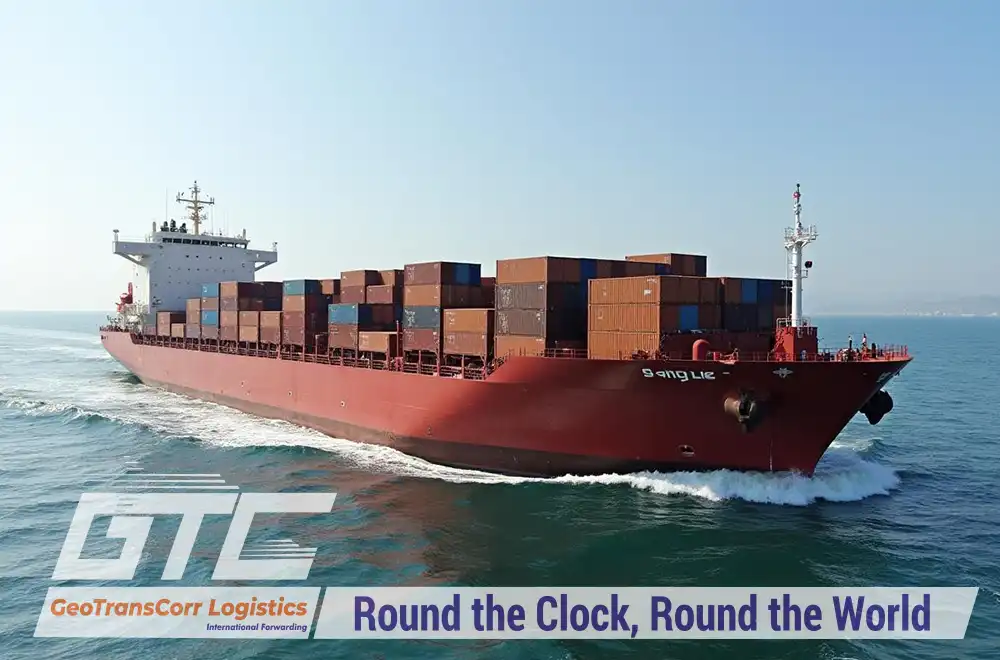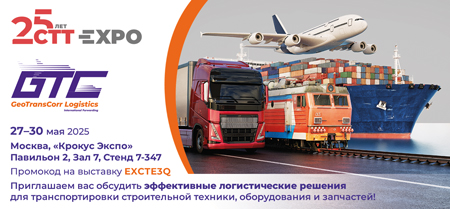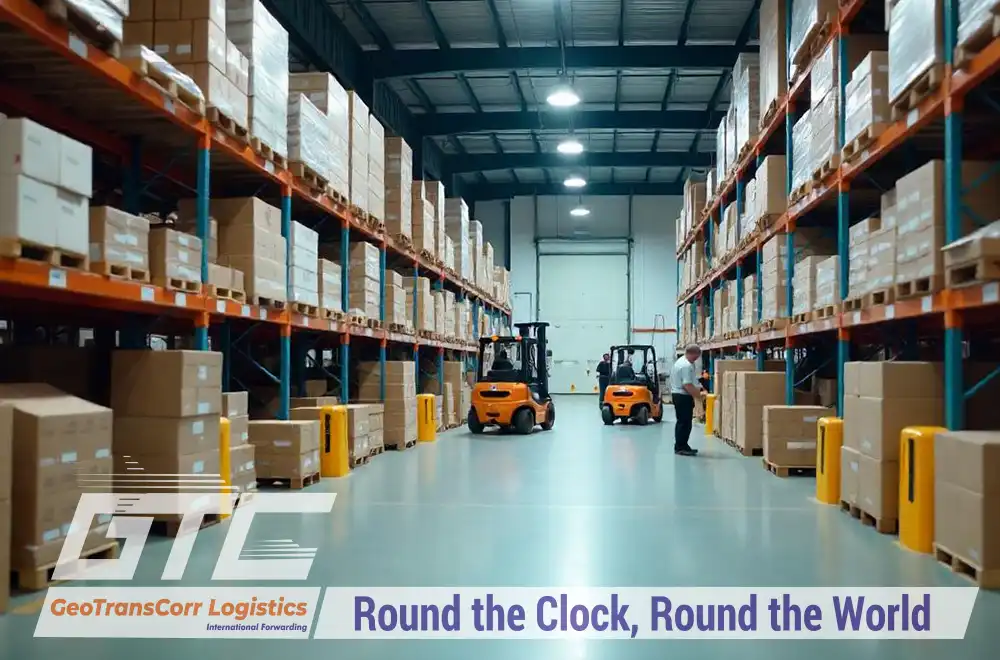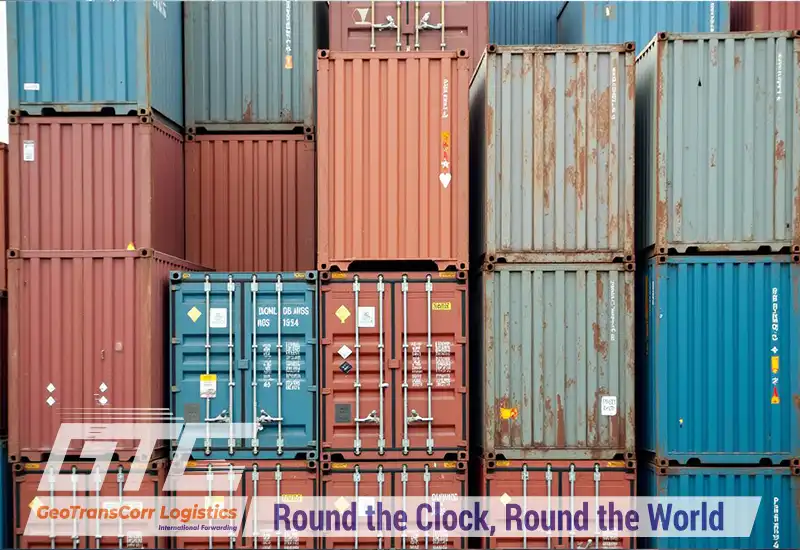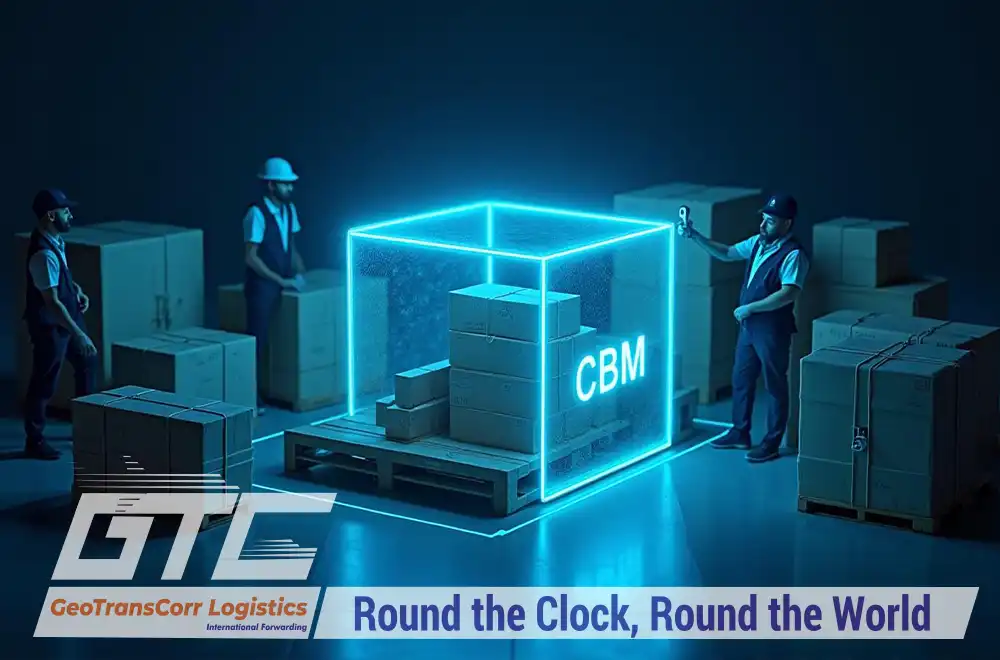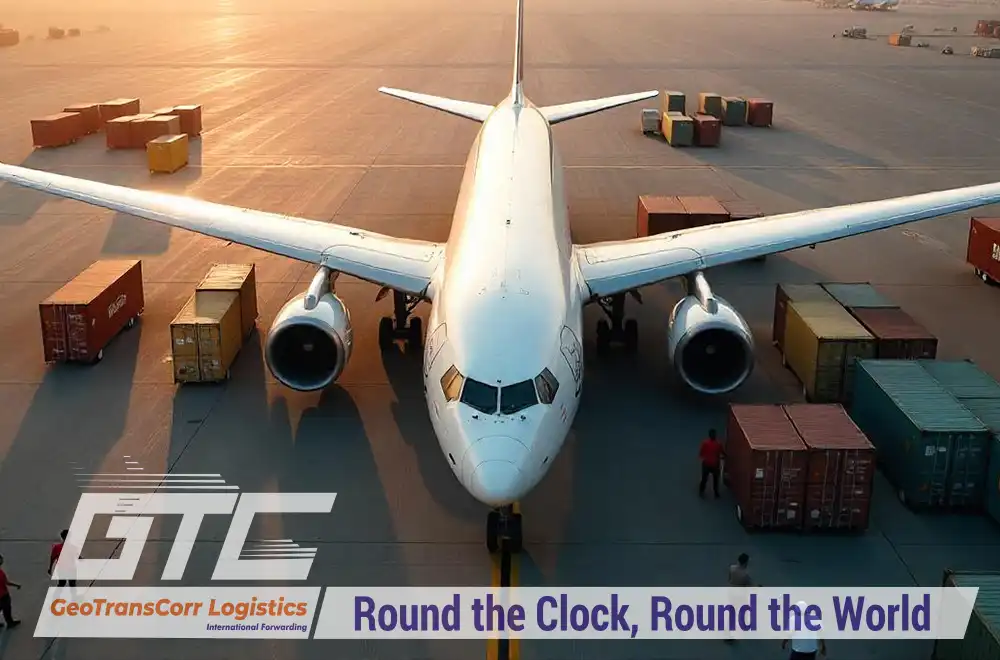Navigating the intricacies of large-scale projects demands more than just standard logistical solutions; it requires a specialized approach known as Project Logistics. This field focuses on the meticulous planning and coordination needed to manage the transportation, storage, and handling of complex materials and equipment, ensuring that every aspect aligns with project timelines and objectives.
In this article, we’ll explore the essential components of Project Logistics, uncover common challenges, and provide actionable insights to help you streamline your project operations. Dive in to discover how mastering Project Logistics can be the key to achieving your project’s success.
What is Project Logistics?
Project Logistics is a specialized branch of logistics focused on managing the transportation, storage, and coordination of goods and materials needed for complex, large-scale projects. Unlike traditional logistics, which generally involves the movement of standard goods on a regular schedule, Project Logistics deals with the unique challenges associated with high-value, oversized, or time-sensitive shipments required for major projects.
Key Components of Project Logistics
- Planning and Coordination
Effective Project Logistics begins with comprehensive planning and coordination. This involves defining the project’s scope to clearly outline all logistical needs and constraints. A detailed timeline is developed to align with the project’s phases and deadlines, ensuring that every task is completed on schedule. Coordinating with various stakeholders, including suppliers, contractors, and project managers, is crucial. Clear and ongoing communication helps to ensure that all parties are aligned, expectations are managed, and any potential conflicts are resolved proactively.
- Transportation Management
Transportation management is a core component of Project Logistics, involving the strategic selection of transportation modes such as road, rail, sea, or air based on the size, weight, and urgency of the cargo. Route optimization plays a critical role, requiring careful planning to avoid delays caused by traffic or infrastructure limitations. Additionally, specialized equipment is often needed to handle oversized or sensitive cargo. Custom transportation solutions, such as flatbed trucks or heavy-lift cranes, are employed to ensure that materials are transported safely and efficiently.
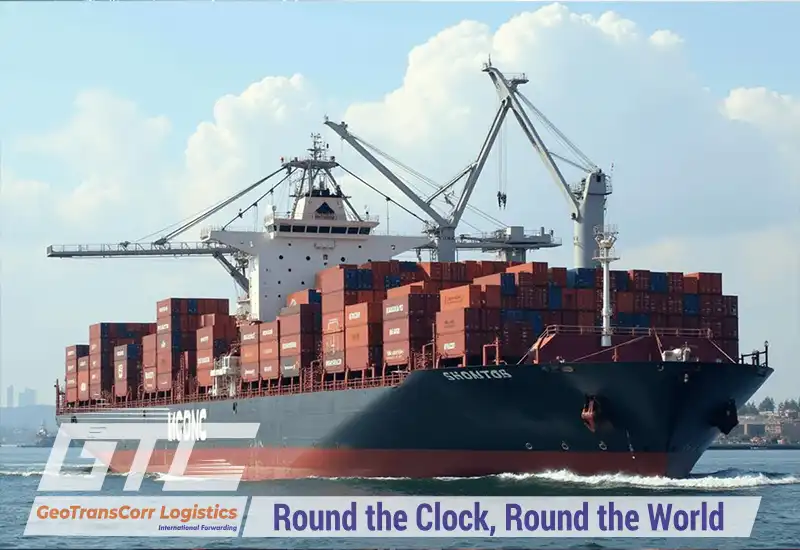
- Warehousing and Storage Solutions
Warehousing and storage solutions are essential for managing materials and equipment throughout a project. Selecting appropriate warehousing facilities involves considering factors like location, capacity, and security to ensure that goods are stored safely and are readily accessible when needed. Effective inventory management systems are put in place to track and control stock levels, preventing shortages or excesses. Handling procedures are also established to ensure that goods are loaded, unloaded, and stored properly, minimizing the risk of damage and optimizing efficiency.
- Risk Management
Risk management is a vital aspect of Project Logistics, involving the identification and assessment of potential risks such as delays, damage, or regulatory issues. Strategies are developed to mitigate these risks and ensure that any disruptions have minimal impact on the project. Contingency planning is an important part of this process, with pre-prepared solutions to address unexpected challenges that may arise. Additionally, obtaining appropriate insurance coverage is crucial to protect against potential losses or damages during transportation and storage.
- Technology Integration
The integration of technology into Project Logistics enhances efficiency and effectiveness. Tracking systems, including GPS and real-time monitoring tools, are utilized to provide visibility into the movement of goods. Data analytics is employed to optimize logistics processes, improve decision-making, and anticipate potential issues before they become problems. Communication tools also play a key role, facilitating real-time updates and coordination among all stakeholders to ensure smooth and seamless operations.
- Regulatory Compliance
Regulatory compliance is an essential component of Project Logistics, ensuring that all legal requirements are met. This involves obtaining necessary permits and documentation for the transportation and handling of goods, particularly when dealing with oversized or hazardous materials. Compliance with customs and import/export regulations is also crucial to prevent delays and avoid legal complications. Adhering to these regulations helps to ensure that the project runs smoothly and avoids any regulatory issues that could impact its success.
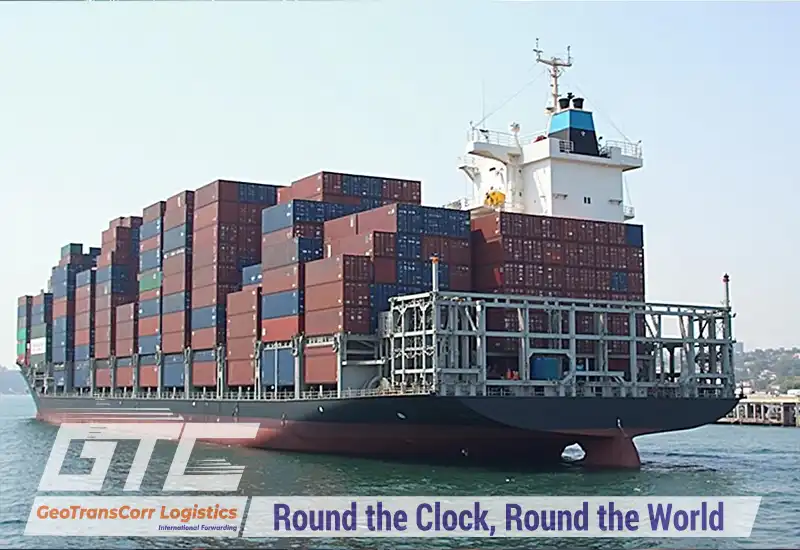
- Execution and Monitoring
The execution and monitoring phase of Project Logistics involves putting the logistics plan into action and ensuring that all activities are carried out as planned. Continuous monitoring is essential to track progress, identify any issues that may arise, and make necessary adjustments to stay on track. By actively managing and overseeing every aspect of the logistics process, potential problems can be addressed promptly, and the project can proceed smoothly and efficiently.
Challenges and Solutions in Project Logistics
Project logistics, while crucial for the successful execution of complex projects, comes with its own set of challenges. Addressing these challenges effectively is key to ensuring smooth and efficient project execution.
Managing Complex Supply Chains
- Challenge: Complex projects often involve multiple suppliers, contractors, and service providers, making it challenging to coordinate and manage the supply chain effectively. The complexity increases with the scale of the project and the diversity of the materials and equipment involved.
- Solution: Implementing a robust supply chain management system is essential. This includes using advanced software for real-time tracking and coordination, establishing clear communication channels with all parties, and creating detailed logistics plans that outline the roles and responsibilities of each stakeholder. Regular updates and status checks can help identify and resolve issues promptly.
Handling Oversized and Specialized Cargo
- Challenge: Projects often require the transportation of oversized or specialized cargo, which can pose logistical difficulties. This includes securing the necessary equipment, obtaining special permits, and navigating infrastructure constraints.
- Solution: Utilize specialized transportation solutions, such as heavy-lift cranes or custom-built transport vehicles, to handle oversized cargo. Work closely with transportation providers to ensure that all permits and regulatory requirements are met. Conduct thorough route planning to identify and address any potential infrastructure limitations.
Dealing with Unexpected Disruptions
- Challenge: Unforeseen disruptions, such as weather conditions, equipment failures, or supply chain interruptions, can impact project timelines and logistics.
- Solution: Develop contingency plans to address potential disruptions. This includes identifying alternative suppliers, transportation routes, and storage facilities. Maintaining flexibility in the logistics plan and having a responsive team ready to address issues as they arise can help mitigate the impact of unexpected events.
Ensuring Timely Delivery
- Challenge: Meeting tight deadlines is often a major challenge in project logistics, especially when dealing with complex schedules and interdependent tasks.
- Solution: Implement a detailed project schedule with clear deadlines and milestones. Use project management tools and software to track progress and identify any delays early. Coordinate closely with all stakeholders to ensure that timelines are adhered to and address any potential delays promptly.
Navigating Regulatory Compliance
- Challenge: Projects must adhere to various regulatory requirements, including customs regulations, import/export controls, and safety standards. Navigating these regulations can be complex and time-consuming.
- Solution: Stay informed about relevant regulations and ensure that all necessary permits and documentation are in place. Engage with legal and compliance experts to ensure that all regulatory requirements are met. Regularly review and update compliance procedures to stay aligned with current regulations.
Managing Costs and Budgets
- Challenge: Controlling costs and staying within budget can be challenging, especially when dealing with unforeseen expenses or changes in project scope.
- Solution: Develop a detailed budget that includes all potential costs, and regularly monitor expenses against this budget. Implement cost-control measures and review financial reports frequently to identify and address any budget overruns. Adjust the budget as necessary to accommodate changes in project scope or unexpected costs.
Ensuring Effective Communication
- Challenge: Effective communication among all stakeholders is essential but can be difficult to maintain, especially in large projects with multiple parties involved.
- Solution: Establish clear communication protocols and channels for all stakeholders. Use project management tools and communication platforms to facilitate regular updates and information sharing. Hold regular meetings and status reviews to ensure that everyone is informed and aligned with the project’s goals and progress.
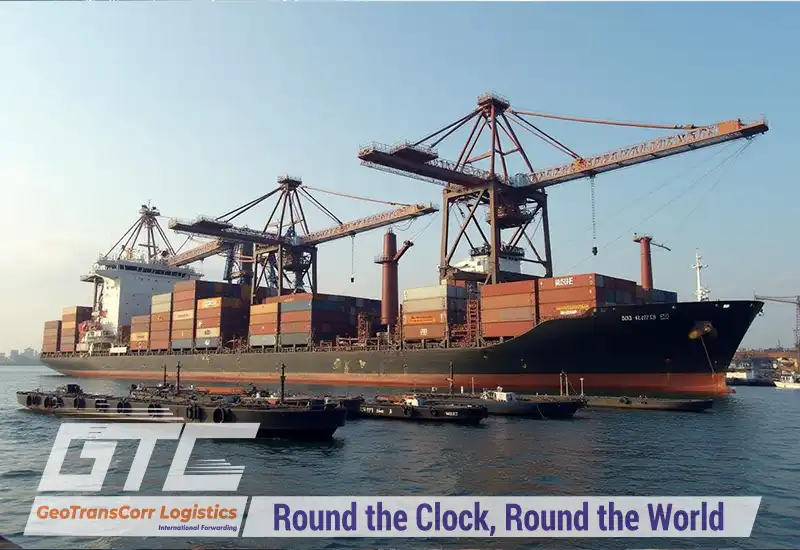
GTC and Project Logistics: Tailored Solutions for Every Need
At GTC, we understand that Project Logistics spans a wide spectrum, from straightforward tasks to highly complex operations. Our expertise covers all facets of logistics, ensuring that whether you’re dealing with oversized cargo, multimodal transportation, or intricate unloading procedures, we have the solution tailored to your specific needs. We specialize in a variety of services including sea, air, rail, and land transportation, as well as barge freight and river transport, providing comprehensive logistics solutions that align with your budget and project requirements.
Our services extend to handling oversized and heavy loads, offering consolidation, packaging, inventory management, and warehouse logistics. We also excel in customs services, ensuring smooth compliance with regulations, and provide a full suite of expedition and consulting services. From planning and route research to risk assessment and obtaining necessary permits, our team manages every aspect of your project logistics. With expertise in project management, document control, industrial packaging, temporary storage, and fiscal representation, GTC is equipped to support you through every stage of your project, delivering efficient and effective logistics solutions tailored to your unique requirements.
Conclusion
Project Logistics is crucial for managing complex projects, involving detailed planning, coordination, and compliance. Effective management of key aspects, like risk assessment, transportation, and warehousing, helps streamline operations and minimize disruptions. By leveraging technology and robust contingency plans, businesses can navigate challenges, ensuring projects are completed smoothly, on time, and within budget.
Ready to streamline your project logistics with expert solutions tailored to your needs? Contact us today to discuss how our specialized services can help you manage every aspect of your project seamlessly. Let us handle the complexities while you focus on achieving your project goals.
